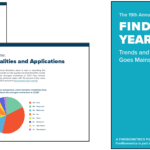DERMALOG has bested its rivals in the University of Cagliari’s latest LivDet competition. The LivDet competition (short for Liveness Detection) takes place every two years in Italy, and was set up to evaluate the effectiveness of different fingerprint anti-spoofing systems.

In that regard, DERMALOG noted that criminals have been able to trick fingerprint scanners with fake fingers (often made of plastic) that have been fitted with a copy of someone’s actual fingerprint pattern. Those attacks can be expensive and time consuming to execute at scale, but if done well, a fake finger can still be used to break into a smartphone, or some other device or facility secured with fingerprint recognition.
The University’s LivDet competition is designed to find software solutions that are resistant to those attacks. Twenty-three teams participated in this year’s competition, and DERMALOG took both the first and second spot after submitting two separate Presentation Attack Detection (PAD) algorithms. The German biometrics specialist has also placed first in prior LivDet challenges.
The competitors are a mix of private companies and academic institutions. DERMALOG’s algorithms were ultimately the ones that were best able to distinguish real fingerprints from the fake ones that were developed for the competition.
“Presentation Attack Detection is an essential part of all fingerprinting systems today to prevent fraud and identity theft,” said DERMALOG CEO Gunther Mull. “We are very proud to be a leader in this technology for many years.”
DERMALOG’s LF10 fingerprint scanner was the first 10-print scanner to obtain Common Criteria PAD certification in Germany. The company was recently listed as one of the 20 most innovative companies in Germany, thanks to a portfolio that supports face and iris recognition in addition to fingerprint biometrics. DERMALOG has also pushed its temperature detection solution as a safety measure during the pandemic.
–
October 12, 2021 – by Eric Weiss








Follow Us